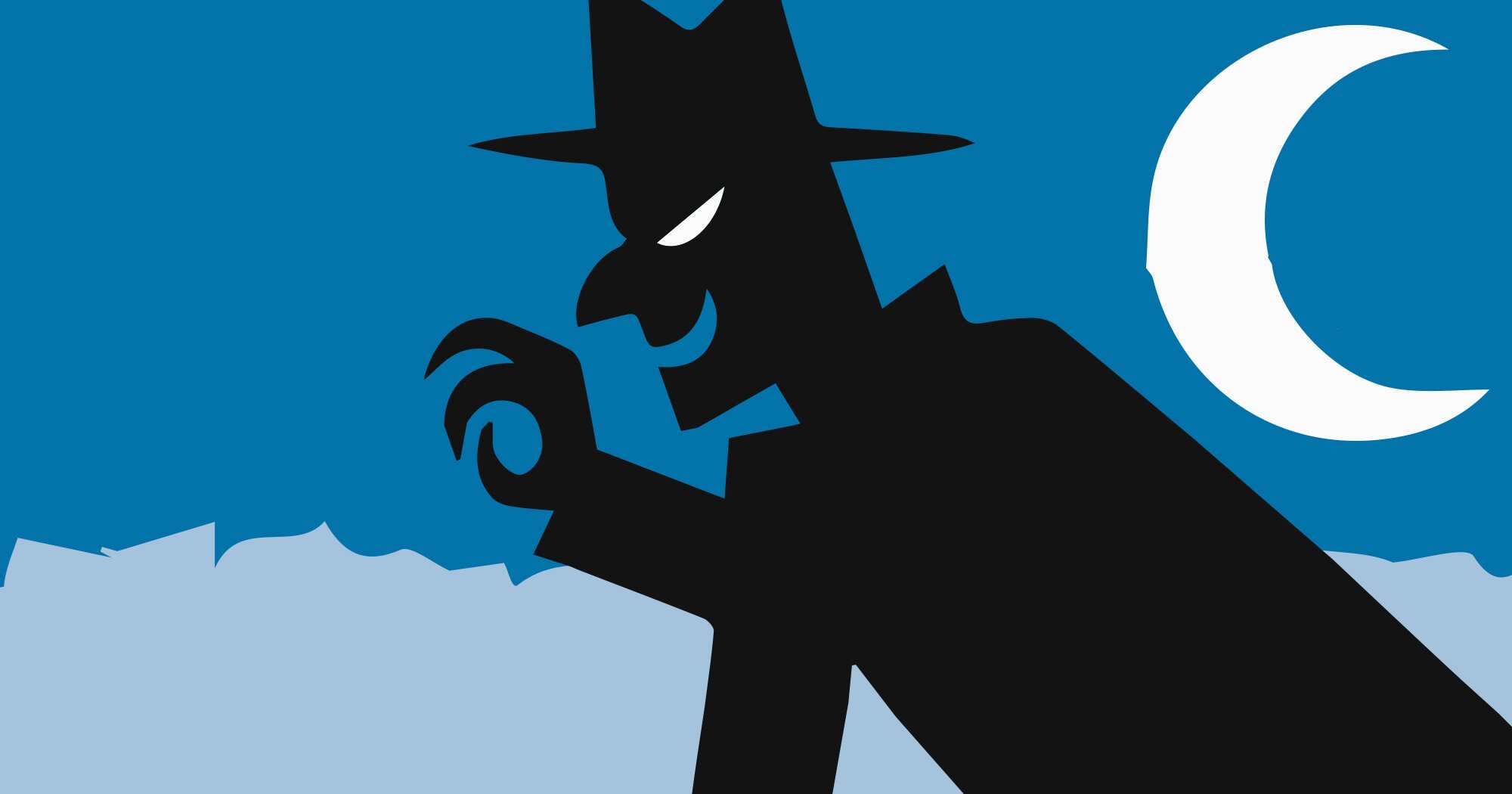A Series of Questions with Lemony Snicket; Children's Author Talks Graphic Novels

Many superheroes have aliases, and literary superheroes are no different. Daniel Handler, aka Lemony Snicket, has written many works under his own name and that of his famous pseudonym, including the thirteen-book A Series of Unfortunate Events and its follow-up series All the Wrong Questions.
Handler mostly writes prose of the nonpictorial variety, but the latter two series feature extensive illustrations by Brett Helquist and noted cartoonist Seth, respectively. Handler has also written the pictorial (comic-style) short story, “It was a Dark and Silly Night”, a contribution to Art Spiegelman and Françoise Mouly’s Little Lit series. I contacted Handler for his thoughts regarding comics, literature, and how the two worlds overlap.
Have you ever written “Lemony Snicket” as your alias on government paperwork?

Daniel Handler (aka Lemony Snicket): 'It was not until my twenties, discovering Lynda Barry and Daniel Clowes and the like, that I found the corner of graphic novels I find most delicious.'
I never have, although recent events have made me keep various aliases at closer hand than usual.
What is your background regarding comics and graphic novels? Were they apart of your childhood or did you enter the comic world later on? Any favorites?
I didn’t grow up in a household that emphasized comic books per se, although in children’s literature the boundaries between illustrated books and comics get a little blurry. Surely Edward Gorey’s The Insect God is one of the great horror comics of all time, and I read mine to tatters. In adolescence I spent more than a few hours thinking about the death of Dark Phoenix in The Uncanny X-Men #137, but it was not until my twenties, discovering Lynda Barry and Daniel Clowes and the like, that I found the corner of graphic novels I find most delicious.
What are some current graphic novel titles you read and enjoy? Anything particularly impressive that has stood out over the years?
My son learned to read with Tintin, which sat uncomfortably in our house for all of its colonialist hegemony and now, more comfortably, he is frankly obsessed with the magnificent March books from the life of John Lewis. When the recent gun control sit-in occurred in Congress, my son was glued to the newspaper: there was his hero, being heroic. My own recent favorites include Fabien Vehlmann and Kerascoet’s Beautiful Darkness–a whole different sort of sit-in—and Sophie Franz’s very eerie The Experts, and when my son and I read together, Luke Pearson’s Hilda books give us everything we need.
Alan Moore’s Watchmen was named to the Time magazine top 100 novels list. What are your thoughts about that? Does a comic or graphic novel belong in this category, or in one all it’s own?
Lists are generally silly. It’s a fun enough parlor game to name the fifty best poetry books of the twentieth century or the 100 Most Overlooked Novels by Swedes, but to apply any list to the glare of serious criticism or social theory strikes me as time better spent reading. Obviously great comics and graphic novels offer pleasure and depth. Their pleasures and depths are different from other pleasures and depths, and the calm sadness of reading a Peanuts collection can be compared and contrasted to, say, the experience of reading Darcy O’Brien’s lovely and melancholy memoir A Way of Life, Like Any Other, although they are not the same thing, the way looking at a carefully preserved ancient Egyptian mummy is not quite the same delicious experience as the first crisp bite of a perfect Granny Smith apple.
Many popular books have been adapted to graphic novel format in recent years. What’s your opinion on this phenomenon?
I find some of those adaptations more successful than others, but I see no harm in any adaptation of a book.
Seth did the illustrations to your most recent Lemony Snicket series. Do you favor illustrations versus full “pictorial storytelling”?
I’ve written short comics here and there, but never a whole graphic novel. The All The Wrong Questions series are by no means graphic novels, even with the blesséd participation of Seth, but perhaps someday I’ll tackle something large and graphic.
Any talk or desire to make graphic novel versions of A Series of Unfortunate Events?
Here and there people have asked me about this but never in any serious way. If I’d do it, I’d want to do it right.
How do you handle comics and graphic novels with your own children? Do you find the abundance to be a setback to “regular” books? Might graphic novels spoil the imagination?
A graphic novel is simply a different animal than a standard book. It is true that we all know what Spider-Man looks like, rather than imagining him as we do characters in non-illustrated novels. This strikes me as neither a shame nor a blessing, just the nature of the beast. As for their alleged blockades to reading, all I have to go on is my own experience and that of my son. I was a quick reader when I was young, and didn’t really come to appreciate comics until I was older; it’s difficult to make the argument that reading A Velvet Glove Cast In Iron is the reason I haven’t cracked open Proust. My son, meanwhile, learned to read from comics, and they have led him slowly but surely to novels. Far from distracting him from reading, comics have made him feel at home in literature.
Anything else you’d like to mention?
I seem to have failed to mention the work of Eleanor Davis, of which I am very fond.

Peter Dabbene wrote the graphic novels Ark and Robin Hood. He is a reviewer for Foreword Reviews, and his poetry and stories have been published in many literary journals, collected in the photo book Optimism, and in the story collection Glossolalia. His latest books are Spamming the Spammers and More Spamming the Spammers.
Peter Dabbene
